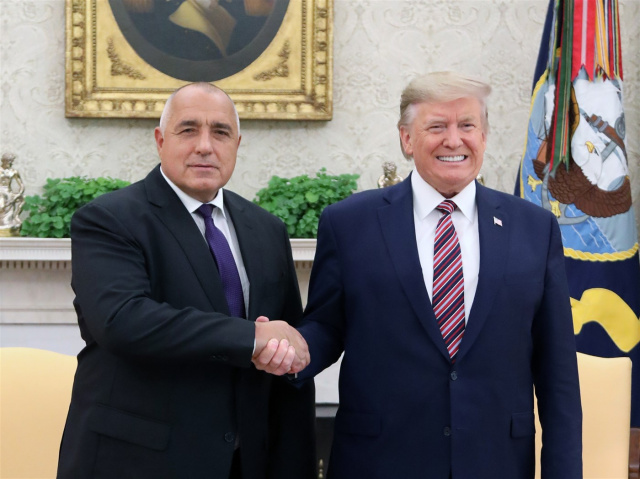October 2024 Bulgarian Parliamentary Election
October 20, 2024 by Cup&Cross
Filed under Events, Featured, News, Publication
Snap parliamentary elections were held in Bulgaria on 27 October 2024,[1][2] after all three attempts to form a government following the latest June 2024 elections failed. This was the country’s sixth snap election since 2021. This series of snap elections is the result of a political crisis affecting the country.
June elections
The June 2024 elections, held at the same time as the European Parliament elections, had the lowest turnout (33%) since the end of communist rule in 1989.[3] It resulted in GERB–SDS winning most of the votes and 68 seats, with no party or alliance obtaining enough seats to form a majority in the National Assembly.[15] The new elected 50th Parliament replaced the 49th Parliament,[16] when all elected members were sworn in on 19 June.[17] Government formation attempts were given to GERB, PP–DB and There is Such a People (ITN), with the final attempt failing on 5 August.[18][19][20]
On 9 August the Bulgarian President as a consequence instead appointed the Vice President of the Bulgarian National Audit Office, Goritsa Grancharova-Kozhareva, as the next caretaker prime minister.[21] Grancharova-Kozhareva was granted ten days to form a proposal for the next caretaker government to be appointed on 20 August, and the upcoming next parliamentary elections were scheduled for 20 October 2024.[22] Grancharova-Kozhareva made the controversial decision to propose that the incumbent minister of the interior, Kalin Stoyanov, should remain in his role, but this was opposed by president Rumen Radev. Radev rejected the government proposal, delaying the upcoming election.[23]
Following the rejection of Grancharova-Kozhareva, Radev re-appointed Dimitar Glavchev as the caretaker prime minister,[24] and his government proposal was sworn in on 27 August, and the elections were set for the 27 October.[25][26]
GERB Leads Election with 68 Parliamentary Seats

Bulgaria: GERB Leads with 68 Deputies as Election Commission Confirms Parliamentary Seats
The Central Election Commission (CEC) has announced the mandates for the parliamentary parties in the 50th National Assembly of Bulgaria. GERB will have the most deputies, with a total of 68. The second-largest parliamentary group will be the DPS with 47 deputies, followed by “We Continue the Change – Democratic Bulgaria” (WCC-DB) with 39. “Revival” will have 38 deputies, while the Bulgarian Socialist Party (BSP) will have 19.
The “Greatness” (Velichie) party will have the smallest parliamentary group, with 13 deputies. “There is Such a People” (TISP) will have 16 representatives, though their leader, Slavi Trifonov, will not be among them, as he was removed from the candidate lists by the CEC after submitting an application.
The CEC also reviewed and approved the analysis of inconsistencies after re-entering and comparing data from the sectional election commissions with the district commissions. Four elected members of the European Parliament have opted to remain as MEPs instead of joining the National Assembly: Hristo Petrov from WCC-DB, Ivaylo Valchev from TISP, Kristian Vigenin from BSP, and Stanislav Stoyanov from “Revival.” The CEC has fulfilled their requests and removed them from the parliamentary lists.
Bulgaria Holds Early Parliamentary Elections
Bulgaria will hold its early parliamentary elections on October 5, 2014. The elections come after much political tension, over a year of constant protests, and a deepening economic crisis expressed most recently in a collapse within the bank sector and a 10% increase of the prices of electricity.
The GERB right-centrists political party is expected to win, but if it will take enough seats in the Bulgarian parliament to form its own government is yet to be seen. Meanwhile, on its resent tour its representatives boldly proclaimed they will not seek coalition with any other political forces namely the leftist Socialist party and the ethnic fractions representing Turkish and other minorities in Bulgaria.
Contrary to this in a recent interview for Routers, GERB’s top leader expressed readiness to collaborate with various political forces including the socialists. Some political parties are also reaching for votes among Bulgarian evangelicals in order to gain momentum in the elections. Evangelicals are not represented by their own party in the current elections, although some Roma evangelical churches are said to have formed a small ethnic political party to reach a better representation.
HISTORY of EVENTS:







